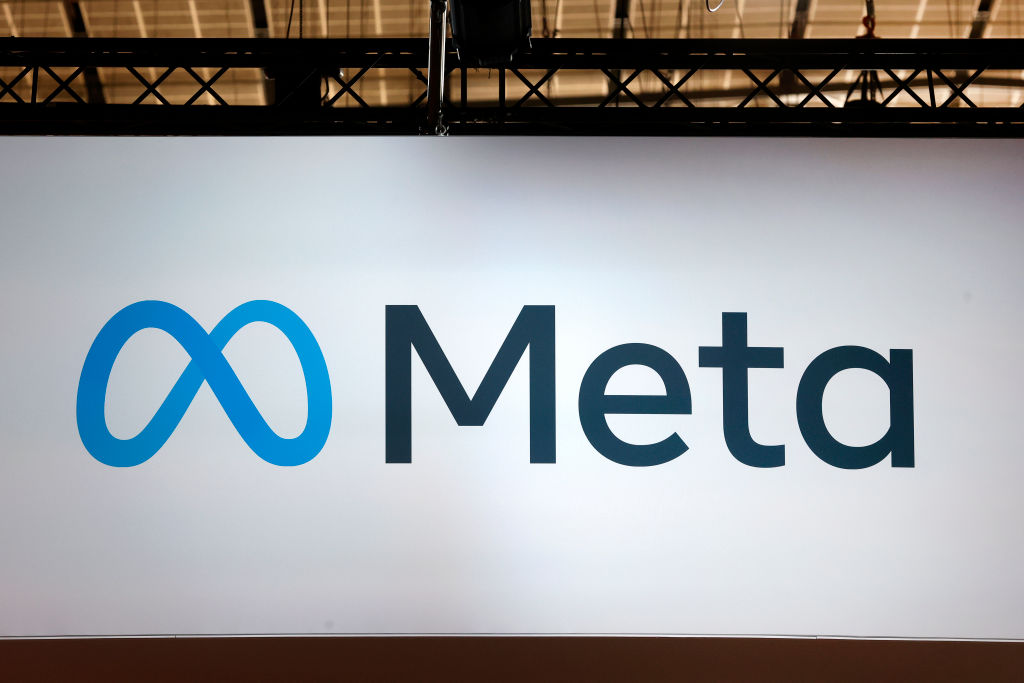Happy Monday! We have to commend rapper Eminem for his keen entrepreneurial spirit after he launched a new pasta sauce, called “Mom’s Spaghetti,” in homage to the iconic first lines of his 2002 hit “Lose Yourself”: “There’s vomit on his sweater already, mom’s spaghetti.” Yum.
Quick Hits: Today’s Top Stories
- Israeli Prime Minister Benjamin Netanyahu announced Saturday the beginning of “the second stage of the war” against Hamas, as Israeli forces began making narrowly targeted incursions into the northern part of the Gaza Strip. The limited ground campaign, which coincided with intense shelling and airstrikes and targeted Hamas’ boobytraps and tunnels, differed from the full-scale ground offensive U.S. defense officials initially expected. On Sunday, Netanyahu apologized for a now-deleted post on X which directed blame at Israel’s security establishment for his government’s failure to prevent Hamas’ October 7 attack that killed 1,400 Israelis. “Under no circumstances and at no stage was Prime Minister Netanyahu warned of war intentions on the part of Hamas,” the post read. “On the contrary, the assessment of the entire security echelon, including the head of military intelligence and the head of Shin Bet [the Israeli security agency], was that Hamas was deterred and was seeking an arrangement.”
- Thousands of Gazans broke into several United Nations food storage facilities on Sunday to steal grain and other food stuff, in what the U.N. said was a sign that “civil order is starting to break down” in Gaza. Aid has entered the war-torn area through its border with Egypt, but the U.N. says the flow has so far been insufficient to meet the overwhelming need of civilians there—though the New York Times reported last week that Hamas has stockpiled enough food and fuel for itself to fight for four months without a need to resupply.
- Hundreds of rioters, carrying Palestinian flags and shouting antisemitic slogans and “Allahu Akbar,” stormed the main airport in the Dagestan region of Russia on Sunday evening in search of Jewish passengers on a commercial flight arriving from Tel Aviv, Israel. Russian authorities in the majority-Muslim area in the Caucasus diverted flights and closed the airport as they cleared the mob. Reuters reported 20 people were injured, two of whom are in critical condition—though the identities of those hurt were not immediately made clear.
- At least three people died and 50 more were injured in southern India on Sunday after an explosion, later determined by authorities to have been caused by an improvised explosive device, tore through a Jehovah’s Witness convention. A man who allegedly posted that Jehovah’s Witness teachings are “dangerous to the country” has reportedly claimed responsibility for the attack and is being held by police.
- The Sudanese army and the rival Rapid Support Force paramilitary force, which have waged war for control of the country since April, returned to U.S- and Saudi-brokered negotiations in Jeddah, Saudi Arabia, over the weekend. The talks will aim to strike a ceasefire in the civil war that has killed 9,000 people and displaced 5.6 million more.
- Former Vice President Mike Pence unexpectedly dropped out of the Republican presidential primary race on Saturday, becoming the first big-name candidate to do so after his campaign had struggled to raise the money needed to continue. “Traveling over the country over the past six months, I came here to say it’s become clear to me: This is not my time,” he told attendees of the Republican Jewish Coalition conference in Las Vegas, Nevada, over the weekend. “So after much prayer and deliberation, I have decided to suspend my campaign for president effective today.” Pence had been polling in the low single digits both nationally and in Iowa.
- U.S. District Judge Tanya Chutkan reinstated a gag order against former President Donald Trump on Sunday as part of the federal case involving Trump’s efforts to overturn the results of the 2020 election. Chutkan had paused the gag order, initially put in effect on October 20, to allow the defense to appeal the decision. Due to an outage of the court’s computer system, further details of the ruling were not immediately available—though that did not stop Trump from decrying the decision as “NOT CONSTITUTIONAL!” on Truth Social and promising to appeal.
- The United Auto Workers union struck a tentative contract deal on Saturday with Stellantis, the parent company of Chrysler, Dodge, Jeep, and Ram, ending a six-week strike against the company. The contract—which, like a similar deal made last week with Ford—must be ratified by the union members, and would include a 25 percent pay raise over the course of the contract, as well as regular cost of living adjustments relative to inflation. The UAW on Saturday expanded its strike against General Motors, the only major automaker with which the union has not yet come to a contract agreement.
- After a 48-hour search, the 40-year-old man allegedly responsible for last week’s mass shootings in Lewiston, Maine, was found dead of a self-inflicted gunshot wound on Friday, according to the Maine Department of Public Safety. The shootings earlier in the week killed 18 people and wounded more than a dozen others.
- Matthew Perry, best known for his role as Chandler Bing on the hit 1990s sitcom “Friends,” died Saturday at the age of 54. The actor, who struggled with drugs and alcohol throughout his life, was reportedly found unresponsive in the hot tub at his home in Los Angeles, though a cause of death is yet unknown.
Social Ills

In response to a 2017 60 Minutes profile of an ex-Google design ethicist, late-night talk show host Bill Maher sounded the alarm on the addictive nature of social media platforms. “Checking your likes is the new smoking,” he said. “Philip Morris just wanted your lungs. The app store wants your soul.”
A bipartisan group of 33 state attorneys general (AGs) launched a lawsuit last week against Meta—Facebook and Instagram’s parent company—making essentially the same argument. The suit alleges that Meta, similar to tobacco companies and opioid manufacturers, knew that its products were addictive and harmful for younger users and misled the public about the dangers. The sprawling lawsuit relies largely on state consumer protection laws and marks one of the broadest legal challenges brought against Meta, but the prosecutors could face an uphill legal battle to prove their claims in court. (Disclosure: The Dispatch is a participant in Facebook’s fact-checking program.)
The social media giant “has profoundly altered the psychological and social realities of a generation of young Americans,” the AGs alleged in a 233-page lawsuit. “Meta has harnessed powerful and unprecedented technologies to entice, engage, and ultimately ensnare youth and teens.” The lawsuit argues that the company schemed to create “a business model focused on maximizing young users’ time and attention spent on” its platforms, designed “psychologically manipulative” features to induce young people to use their products compulsively, and knowingly misled people about the harms while continuing to downplay their consequences. Eight additional states and the District of Columbia filed similar lawsuits last week.
“Just like Big Tobacco and vaping companies have done in years past, Meta chose to maximize its profits at the expense of public health, specifically harming the health of the youngest among us,” Colorado Attorney General Philip Weiser, a Democrat who co-led the investigation into Meta, said in a press release last week. A Meta spokesperson, meanwhile, noted the company has offered tools to support teen users on its platforms and said it is “disappointed that instead of working productively with companies across the industry to create clear, age-appropriate standards for the many apps teens use, the attorneys general have chosen this path.”
The AGs cited growing concerns in recent years about the potentially negative effects of social media on children’s mental health, and Meta’s knowledge of the harms. In 2021, explosive whistleblower claims from Francis Haugen, a former Facebook employee who shared thousands of screenshots of internal company documents with the press and lawmakers, further confirmed the states’ concerns. “By the time we got to the whistleblower Francis Haugen,” Weiser told TMD, “there was, I think, real clarity that they knew what was happening because of their platform, but they were deceiving the public, saying something else.”
The documents released by Haugen (many of them published in the Wall Street Journal’s “Facebook Files” series) seemed to depict Meta’s active knowledge of the negative side effects young people experienced while using their platforms. Researchers at Instagram, for example, conducted internal studies on users that consistently showed teen girls believed using the platform hurt their body image. “Thirty-two percent of teen girls said that when they felt bad about their bodies, Instagram made them feel worse,” a 2020 company slide said. The findings flew in the face of Meta’s public branding as a community platform for people to build positive connections. “The core of the issue is that no one can understand Facebook’s destructive choices better than Facebook, because only Facebook gets to look under the hood,” Haugen said in written testimony before Congress in 2021.
The state AGs, armed with broad investigatory powers, were finally able to open the Meta-phorical hood and poke around—and didn’t like what they saw. “At all relevant times, Meta had a thorough understanding of the mental and physical harms and addiction suffered by young users of its social media platforms,” the lawsuit argues. “Instead of taking adequate measures to mitigate these damaging effects, Meta turned a blind eye to them.” Prosecutors are seeking not only fines and penalties for Meta’s alleged conduct, but also legal remedy for the features and product designs they argue are harmful.
Some psychologists such as Jonathan Haidt and Jean Twenge, both of whom are cited in the suit, have argued that a strong causal link exists between social media use and the mental health epidemic among young people, particularly teen girls. After reviewing more than 100 studies on social media use and mental health, Haidt and Twenge (along with another researcher) concluded the data suggest the platforms are at least partially to blame. “Taken as a whole, it shows strong and clear evidence of causation, not just correlation,” Haidt wrote earlier this year. There is still debate about the level of blame one can assign to social media use for poor youth mental health—but at the very least, there certainly isn’t conclusive evidence to the contrary. “We do not yet have enough evidence to determine if social media is sufficiently safe for children and adolescents,” the Surgeon General said in an advisory released this May.
Proving such a causal link in court, however, will likely be challenging. “The complaint, as I read it, is focused mainly on the state consumer protection laws, and those require some proof of causation usually, and the tricky thing is showing that Meta is causing these health outcomes in children,” Mark Bartholomew, a University of Buffalo Law School professor who specialties in cyber law, told TMD. “I’m very sympathetic to this. I think there is some causal role here. … It’s just the law requires really explicit causality.”
The AGs are aware of the uphill climb they face. “Should you argue that the inherent harms of this product are unfair, and in some cases, you might even argue unconscionable, and that should be addressed by state consumer protection law, that’s something we have to prove in court,” Weiser told TMD. “We have to show that they marketed a product that was dangerous, they knew was dangerous, and by failing to design their products in a safer way, the product itself was unconscionable and unfair.”
The case makes two separate but related arguments that Meta violated consumer protection laws. First, the use of the platforms is harmful—“unfair” under consumer protection laws—to younger users. This will hinge on proving causality. Second, prosecutors allege Meta engaged in deception, which is typically easier to prove than unfairness claims. “The whole point of deception law is you don’t have to prove harm,” said Berin Szoka, an attorney and the president of TechFreedom, a think tank representing the tech industry’s perspective in Washington. “Deception requires materiality but not harm, and unfairness requires harm but not a statement.”
But deceptive statements don’t always run afoul of consumer protections. Prosecutors will have to demonstrate that Meta’s statements were made directly to consumers, were misleading, and that they materially affected consumers’ choices to use their platforms. “Even if you’re willing to say, ‘Well, we don’t have to have 100 percent causal link,’ you’re going to have to show that there’s something very specific they knew about, and then they misled consumers about it,” said Bartholomew. The lawsuit points to statements Meta made in testimony before Congress, as well as comments on earnings calls and in the media where the company said their platforms are designed to support young users’ well-being. The court might not consider such instances as examples of direct consumer deception that altered users’ behavior, but the AGs think it should. “If you were to take a view of deception that making broad representations publicly that consumers, here parents and kids, are going to hear is somehow not sufficient, and you have to show something more granular, you’re creating a pretty large loophole for companies to deceive consumers and get away with it,” Weiser argued.
The AGs also allege that Meta violated the Child Online Privacy Protection Act (COPPA)—a potentially easier claim to prove—by collecting data on young users without parental consent and marketing its platforms to children under the age of 13. The suit, for example, points out that for a time, Instagram encouraged users to report their age as 13 years or older when creating an account by making the default selection of their age 13 years old—a practice that the Federal Trade Commission’s 2020 guidance said violated COPPA. Nonetheless, whether Meta broadly violated COPPA will hinge on the evidence prosecutors have of the company’s “actual knowledge” of underage users being on their platforms.
Some legal observers think the case could run afoul of the First Amendment and Section 230 of the Communications Decency Act—a federal law that protects social media companies from liability for the third-party content published on their platforms. The states argue Meta’s algorithms and content creation induce compulsive use, and Jane Bambauer, a University of Florida Law School professor who specializes in First Amendment and media law, believes such claims could implicate the company’s free speech protections. “The First Amendment defense is unavoidable,” Bambauer told TMD. “The question will be whether these types of claims are going to be narrowly tailored enough to a sufficiently compelling state interest to overcome that defense.”
Taken together, the states have a difficult task in front of them. “The AGs have a lot to prove,” Szoka told TMD. “It’s really going to be a question of how much evidence they can bring to bear.” Significant portions of the lawsuit are redacted, and could contain additional evidence supporting the prosecutors’ case. Weiser told TMD he was unable to comment on the nature of the redacted elements, but that investigators had engaged in robust evidence collection.
Exactly what that evidence shows, Bartholomew said, could alter the trajectory of the case: “If they’ve really learned that the whistleblower was the tip of the iceberg and there was a lot more that these platforms knew, then that could change things.”
Worth Your Time
- Spiders, it seems, are disappearing—and not just because they’re being squashed for squatting in our homes. “Jumping spiders may be in decline,” Betsy Mason writes for Knowable Magazine. “In tropical forests, it used to be easy to find them in a matter of minutes, says behavioral biologist Ximena Nelson, who studies jumping spiders. But for some species, that’s changed over the last couple decades. ‘Now, I mean, you just can’t find them at all in some cases.’ In fact, all over the world, all sorts of spiders seem to be disappearing, says conservation biologist Pedro Cardoso of the University of Lisbon.” But spiders are so nearly universally reviled, it’s hard for scientists to find funding to study the changes they’re seeing. The solution—to both the data problem and our collective fear—is counting spiders, Mason says. After college students were recruited to find and take pictures of spiders, “people reported being far less likely to react negatively to a spider. We know so little, and biodiversity is declining so fast, Dimitar Dimitrov, an arachnologist who studies the evolution of spider diversity, told me, even the level of funding national governments can muster for traditional science couldn’t handle the scale and urgency of the challenge. But involving the public has the potential to make a big impact in a short time, Dimitrov said. ‘All these people in their free time doing something like this as a hobby, a few hours here and there, can actually contribute a huge amount of information that is probably able to change, qualitatively, what we know about nature and biological diversity.’”
Could We Be Any More Devastated?
Rest in peace, Matthew Perry.
Presented Without Comment
The Times of Israel: Hamas Official Storms Out of BBC Interview When Asked About Israeli Civilians Killed
Also Presented Without Comment
Axios: Trump Says Pence Should Endorse Him After Former VP Suspends 2024 Campaign
Toeing the Company Line
- Our Monthly Mailbag (🔒) is back! Dispatch fact checker Alex Demas will take your questions this month, on everything from Premier League soccer, to political economy, to cocktails. Members can drop questions in the comments here.
- In the newsletters: The Dispatch Politics crew covered Rep. Dean Phillips’ bid to become the 2024 Democratic presidential nominee, Nick unpacked (🔒) the potential electoral effect of Biden’s pro-Israel stance, Jonah explained why Israelis aren’t “settler-colonists,” Haley looked into (🔒) the feasibility of newly elected Speaker Mike Johnson’s promise to “decentralize” the House, and Chris argued January 6 will dominate at least one more election cycle.
- On the podcasts: Jonah ruminated—from Prague—on the origins of left-wing opposition to Israel on the Remnant, while Jamie Weinstein made his Dispatch Podcast debut to discuss international law and its uneven application to the war between Israel and Hamas with Jeremy Rabkin of the Antonin Scalia Law School.
- On the site over the weekend: Gonzalo Schwarz reviewed David Leonhardt’s new book about the American dream and Nick Ripatrazone reflected on The Exorcist 50 years after its release.
- On the site today: Carine Hajjar addresses the antisemitism sweeping U.S. college campuses and Doug Ollivant describes what a ground assault on Gaza may look like.
Let Us Know
Do you think that, like smoking, social media use will become less popular among future generations?








Please note that we at The Dispatch hold ourselves, our work, and our commenters to a higher standard than other places on the internet. We welcome comments that foster genuine debate or discussion—including comments critical of us or our work—but responses that include ad hominem attacks on fellow Dispatch members or are intended to stoke fear and anger may be moderated.
With your membership, you only have the ability to comment on The Morning Dispatch articles. Consider upgrading to join the conversation everywhere.